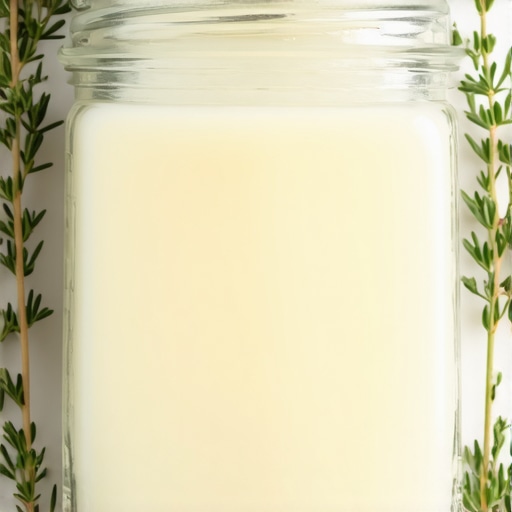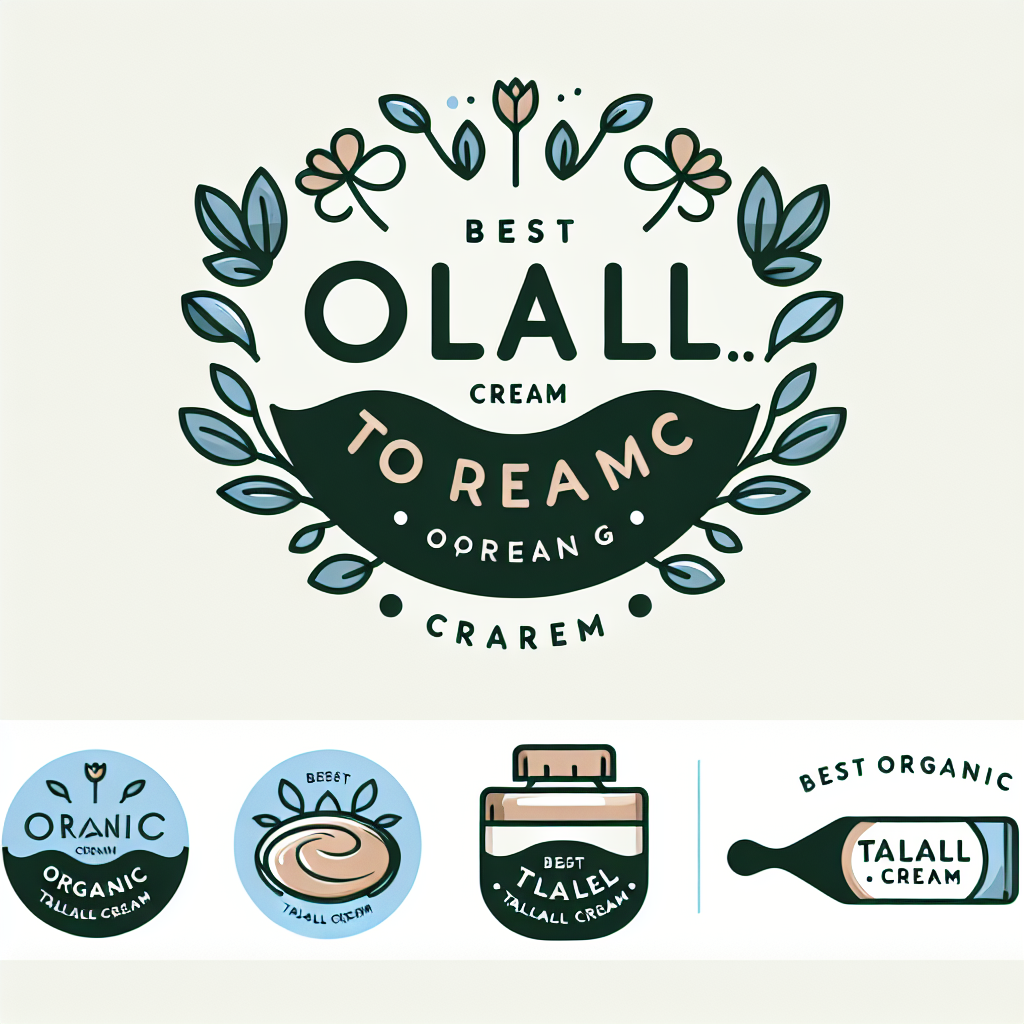My Personal Journey with Autoimmune Skin Challenges and Ethical Tallow
As someone who’s struggled with autoimmune skin conditions, I know how daunting it can be to find gentle yet effective skincare solutions. A few years ago, I faced persistent dryness, redness, and irritation that traditional products just couldn’t soothe. That’s when I stumbled upon the remarkable benefits of ethical tallow. Incorporating this nutrient-dense, natural ingredient into my routine marked a turning point in my healing journey.
The Healing Power of Nutrient-Rich Tallow for Sensitive and Autoimmune Skin
What makes ethical tallow so special? It’s packed with vitamins A, D, E, and K—nutrients essential for skin repair and regeneration. I learned that tallow closely resembles our skin’s own sebum, making it incredibly compatible and nourishing. After switching to grass-fed, ethically sourced tallow, I noticed my skin became less inflamed and more resilient. The anti-inflammatory properties helped calm my skin’s irritation, while the rich fatty acids promoted deep hydration, which I desperately needed.
How Ethical Sourcing Enhances My Confidence and Skin Health
One aspect I deeply appreciate is the emphasis on ethical sourcing. Choosing tallow from grass-fed, sustainably raised animals ensures that I support humane practices and reduce my ecological footprint. This aligns with my values and adds an extra layer of trust in the products I use. I often explore clean beauty trends to stay informed about innovative ingredients like tallow that truly prioritize health and sustainability.
Can Tallow Really Support Autoimmune Skin Healing? My Thoughts
This question has crossed my mind many times. Based on my experience and research, I believe that nutrient-rich tallow can play a supportive role in healing autoimmune skin conditions. Its ability to repair the skin barrier and reduce inflammation makes it a promising natural remedy. For those curious about how to incorporate tallow into daily routines, I recommend starting with simple applications of DIY tallow creams. Always patch-test new products and consult with a healthcare provider if necessary.
Sharing my journey, I invite you to explore the many benefits of ethical tallow and consider if it might support your skin healing. If you’ve had similar experiences or questions, please leave a comment below—I love hearing from fellow skincare enthusiasts and autoimmune warriors!
Unlocking the Secrets of Organic Tallow for Autoimmune Skin Revival
As more skincare enthusiasts embrace natural remedies, organic tallow stands out as a powerhouse ingredient for supporting autoimmune skin conditions. Its rich composition of essential fatty acids and fat-soluble vitamins makes it uniquely suited to restore and reinforce compromised skin barriers. When integrated thoughtfully into your routine, tallow can be a gentle yet effective ally in your healing journey.
What Makes Organic Grass-Fed Tallow a Skin Superfood?
Organic grass-fed tallow is loaded with nutrients such as vitamins A, D, E, and K, which are crucial for skin repair and regeneration. Its molecular similarity to human sebum allows it to penetrate deeply, nourishing cells from within. Moreover, its anti-inflammatory properties can help soothe redness and irritation associated with autoimmune flare-ups, making it an ideal choice for sensitive skin prone to autoimmune reactions.
Practical Tips for Incorporating Tallow into Your Autoimmune Skincare Routine
Start by choosing high-quality, ethically sourced grass-fed tallow. Gently massage a small amount onto clean skin, focusing on areas with damage or irritation. For a more targeted approach, consider making your own DIY tallow face cream, infused with soothing essential oils like chamomile or calendula. Regular application can enhance skin barrier function and promote healing.
Can Tallow Support Deep Skin Repair and Autoimmune Healing?
This question is at the heart of many discussions among skincare experts. Scientific studies, such as those highlighted in research on beef tallow, demonstrate its ability to supply vital nutrients that facilitate cellular repair and reduce inflammation. For autoimmune skin, where barrier integrity is often compromised, tallow’s nourishing qualities can help restore resilience and decrease sensitivity over time.

Image description: A close-up of a jar of pure organic grass-fed beef tallow with fresh herbs and natural ingredients, highlighting its purity and nutritional richness.
What Are the Potential Challenges and How to Overcome Them?
While the benefits are impressive, some individuals may experience initial purging or sensitivity. It’s advisable to patch-test and start with small amounts. Additionally, sourcing ethically raised, grass-fed tallow ensures you support sustainable and humane practices, aligning with eco-conscious values. For more insights on sourcing, explore ethical tallow sourcing.
Have you wondered how the nutrient profile of tallow compares with other natural oils like shea butter or coconut oil for autoimmune skin?
Understanding these nuances can help tailor your skincare for optimal results. Tallow’s unique composition makes it particularly effective for deep nourishment and barrier repair, especially in sensitive and autoimmune conditions. For a comprehensive comparison, see tallow vs shea butter.
If you’re considering making the switch or exploring new ingredients, I invite you to share your thoughts or questions below. Also, don’t miss the opportunity to discover more about clean, sustainable skincare options by visiting safe skincare during pregnancy. Your journey to healthier, more resilient skin might just begin with a humble, nutrient-rich tallow.
Over time, my journey with ethical tallow has revealed layers of complexity that I hadn’t initially anticipated. While the nourishing benefits are clear, I’ve become increasingly interested in how the molecular structure of tallow interacts with the skin at a cellular level, especially in autoimmune conditions where skin barrier dysfunction is profound.
One aspect I find particularly fascinating is the presence of conjugated linoleic acid (CLA) in grass-fed tallow, which has been linked to anti-inflammatory effects within the body. Scientific research, such as the study published in The Journal of Nutritional Biochemistry, highlights how CLA can modulate immune responses, potentially reducing autoimmune flare-ups when used topically. This deepens my belief that nutrient-dense fats like tallow don’t just serve as superficial moisturizers but play a critical role in cellular signaling and immune regulation.
In my routine, I’ve started to incorporate more targeted applications of whipped tallow infused with anti-inflammatory essential oils like chamomile and calendula. I notice that these blends not only soothe my skin but seem to support a more balanced immune response over time. It’s a gentle, natural approach that aligns with my desire for holistic healing practices.
From my personal experience and ongoing research, I’ve come to appreciate how important it is to consider the sourcing of ingredients. Ethical, grass-fed tallow isn’t just about sustainability; it’s about ensuring the nutrient profile is optimal for skin repair. The quality of fats significantly influences their bioavailability and efficacy, making the choice of high-quality tallow essential for anyone aiming to harness its full potential.
For those of you exploring natural remedies for autoimmune skin conditions, I highly recommend delving into research on beef tallow’s healing properties. It’s inspiring to see how ancient practices are being validated by modern science, emphasizing the importance of nourishing our skin from within with nutrient-rich, ethical ingredients.
Would love to hear your experiences or questions—have you noticed any specific benefits or challenges when using tallow for autoimmune skin issues? Sharing our stories can inspire more personalized and effective healing routines. Feel free to leave a comment or reach out through contact. Together, we can continue exploring natural solutions that honor our bodies and the planet.
The Molecular Dance of Tallow with Autoimmune Skin Cells
Delving into the cellular level, I’ve become increasingly fascinated by how the molecular structure of grass-fed tallow interacts with compromised skin. Its composition of conjugated linoleic acid (CLA) and other bioactive lipids not only calms inflammation but also influences immune cell signaling. According to a study published in The Journal of Nutritional Biochemistry, CLA modulates immune responses by affecting cytokine production, which could potentially reduce autoimmune flare-ups when applied topically. This insight encourages me to explore formulations that maximize these molecular benefits, such as whipped tallow infused with anti-inflammatory botanicals.
Harnessing the Power of Nutrient Synergy in Tallow-Based Formulations
Creating a potent skincare regimen involves understanding nutrient synergy. I’ve found that combining nutrient-dense tallow with ingredients like vitamin E-rich oils or herbal extracts enhances repair processes. For instance, infusing whipped tallow with calendula or chamomile not only provides soothing effects but also delivers antioxidants that support cellular regeneration. This holistic approach aligns with the latest research emphasizing the importance of nutrient synergy for skin healing, especially in autoimmune conditions where barrier function is severely compromised.
Can Advanced Sourcing and Processing Elevate Tallow’s Healing Potential?
Absolutely. The quality of tallow profoundly impacts its efficacy. Sourcing from ethically raised, grass-fed animals ensures the nutrient profile remains intact, preserving vital fatty acids and fat-soluble vitamins. Moreover, gentle processing techniques like low-temperature rendering maintain the bioactivity of these nutrients. I’ve personally invested in brands that prioritize transparency and sustainability, which not only supports ethical practices but also guarantees a superior product. For those interested, exploring ethical sourcing is essential for maximizing therapeutic benefits.
How Do Topical Tallow and Cellular Repair Intersect in Autoimmune Healing?
This is a critical question I continually explore. Scientific evidence suggests that nutrient-rich fats like tallow provide the building blocks for cellular membrane repair and regeneration. When the skin barrier is damaged by autoimmune activity, replenishing these lipids helps restore resilience. The work of researchers such as Dr. John O’Connor underscores the importance of restoring lipid balance to modulate immune responses. Incorporating targeted applications of whipped tallow with added botanical extracts can facilitate this process, fostering a more balanced immune environment over time.
What Are the Latest Innovations in Tallow-Based Autoimmune Skin Treatments?
Emerging trends include incorporating adaptogenic herbs like ashwagandha or medicinal mushrooms into tallow formulations, aiming to further support immune regulation and reduce systemic inflammation. Additionally, microencapsulation techniques allow for the stabilization and controlled release of bioactive compounds, increasing their bioavailability and therapeutic impact. I encourage curious readers to experiment with these innovations, always prioritizing high-quality, ethically sourced ingredients. For in-depth guidance on formulation, visit DIY formulations that integrate advanced healing botanicals.
Engaging with these sophisticated approaches enables a deeper understanding of how nutritional science and artisanal craftsmanship converge to elevate autoimmune skin care. I invite you to share your experiences or ask questions—your insights can inspire further innovation in this field. Reach out through contact—together, we can continue refining natural, effective healing strategies rooted in both science and tradition.
Things I Wish I Knew Earlier (or You Might Find Surprising)
The Power of Simplicity
One surprising realization I had was how much my skin appreciated simple, nutrient-dense ingredients like ethical tallow. In my early skincare experiments, I overlooked the importance of pure, minimally processed fats, but now I see that less can be more, especially for sensitive and autoimmune skin.
Cellular-Level Healing
Discovering how tallow interacts at the cellular level was a game-changer. The presence of conjugated linoleic acid (CLA) in grass-fed tallow can influence immune responses, helping to calm inflammation and support skin repair from within. It’s like nourishing your skin’s cells with a familiar, natural language.
Ethical Sourcing Matters
Initially, I thought all tallow was created equal, but learning about ethical sourcing from grass-fed, sustainably raised animals deepened my trust. Knowing that my skincare supports humane practices and environmental health makes applying tallow even more meaningful.
Customization Unlocks Potential
Creating my own whipped tallow infused with botanicals like calendula or chamomile has opened new doors. Personalizing formulations allows me to address specific skin needs, making my routine both effective and enjoyable.
Patience Is Key
Healing autoimmune skin doesn’t happen overnight. I’ve learned to be patient and consistent, trusting that nourishing my skin with high-quality tallow will gradually restore resilience and reduce irritation over time.
Resources I’ve Come to Trust Over Time
- Deep Skin Repair with Beef Tallow: This detailed article helped me understand the scientific basis of tallow’s healing properties, which solidified my confidence in using it regularly.
- The Journal of Nutritional Biochemistry: Reading peer-reviewed studies on CLA and fatty acids provided a deeper insight into how these nutrients support immune regulation and skin health.
- Best Organic Tallow for Deep Hydration: A trusted brand that maintains high-quality sourcing, reinforcing my choices for effective skincare ingredients.
- Creating Organic Tallow Balm for Babies: This guide inspired me to experiment with gentle, nourishing formulations suitable even for the most sensitive skin.
Parting Thoughts from My Perspective
Ultimately, my journey with ethical tallow has taught me the importance of returning to nature’s most nourishing gifts. For anyone dealing with sensitive or autoimmune skin, exploring nutrient-rich, ethically sourced ingredients like grass-fed tallow could be a transformative step. It’s a gentle, effective way to support your skin’s healing process from the inside out. If this resonates with you, I’d love to hear your thoughts or experiences. Share this with someone who might benefit, and let’s continue this journey of natural healing together. Feel free to drop your own stories in the comments or reach out through contact.

